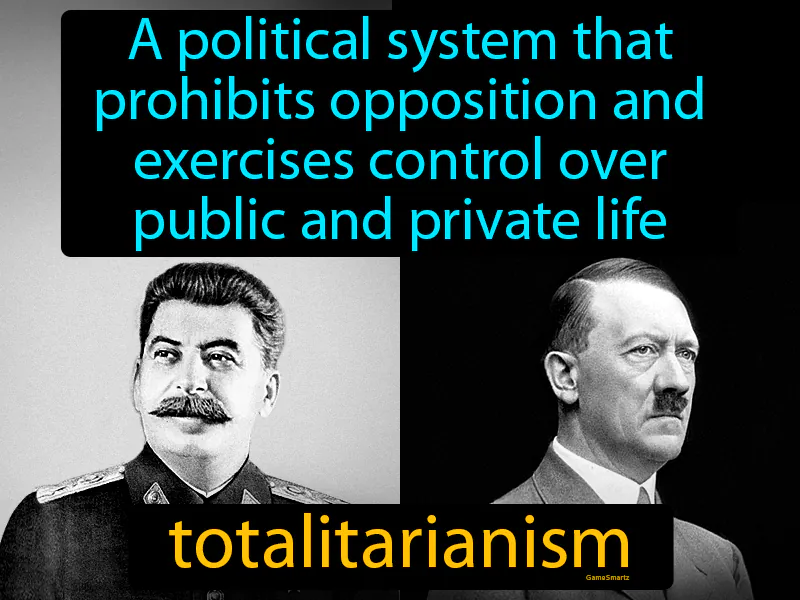Totalitarianism
Totalitarianism: Easy to understand
During the period leading up to World War 2, totalitarianism became significant as countries like Nazi Germany and Fascist Italy adopted this system, seeking complete control over society and quashing any opposition. This approach responded to economic instability and social unrest by promising order and national strength, often at the cost of individual freedoms. Today, totalitarianism remains relevant as people continue to value democratic principles and personal rights while being aware of the dangers of unchecked governmental power. For example, in some countries, censorship and surveillance are used to control information and suppress dissent, affecting citizens' ability to speak freely and access diverse viewpoints. Understanding totalitarianism helps us recognize the importance of protecting democracy and human rights in our communities.

Practice Version

Totalitarianism: A political system that prohibits opposition and exercises control over public and private life. Totalitarianism. In history, totalitarianism refers to a government that seeks to control every aspect of society and individuals' lives, often through dictatorship.